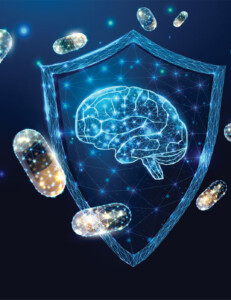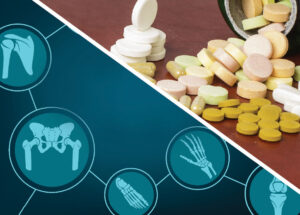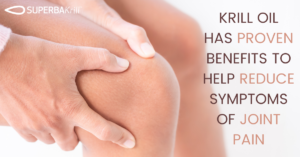The scientists who have guided the world of Coenzyme Q10 (CoQ10) science recently met at the 7th International Coenzyme Q10 Association (ICQA) meeting in Sevilla, Spain. True to their earlier symposiums, held biennially in different locations, the scientists again distilled the forefront of CoQ10 knowledge on subjects ranging from mitochondrial bioenergetics, cardiovascular and neurodegenerative diseases, gene regulation and clinical aspects of aging. The presentations on these subjects are compiled in a program and abstracts book—a book that provides clinical and experimental gems that harbor the future of CoQ10 supplements. Some of these fascinating studies are summarized in this review of the ICQA conference.
Ubiquinol and Autism
A group of scientists from Comenius University’s Pharmacobiological Laboratory (Bratislava, Slovakia) have been conducting research on children with autism. This is a developmental disorder that manifests within 3 years after birth, and its causes are thought to be multifactorial. Scientists studying autism have suspected factors including genetic, endocrinological, diet (which may be related to inability to properly utilize nutrients) and vaccine sensitivity. Parents with children affected by autisms typically notice the child’s difficulty in social interaction as well as verbal and non-verbal communication— most often parents will observe these patterns within 18 months to 2 years of birth. The behavioral problems may take the form of hyperactivity, self-harm and aggressions, and could be accompanied by sleeping and eating disorders. The prevalence of autism is staggering, with some estimates at approximately two million people in the U.S. afflicted by the condition. A systematic review of scientific databases has revealed that several approaches are being tried in the treatment of autism, such as music therapy, melatonin, l-carnitine, probiotics and omega-3 fatty polyunsaturated fatty acids.1
In an earlier experimental study, the Comenius University researchers had demonstrated ubiquinol raised CoQ10 concentrations in individual regions of the brain.2 Based on their initial finding, the researcher sought to determine the effects of ubiquinol supplementation in children with autism. A total of 24 children, aged 3 to 6 years, were involved in the study, and they were diagnosed according to international classification of diseases MKCH and the Childhood Autism Rating Scale. The autistic children were initially administered a daily dose of 50 mg ubiquinol. After seven days of observing a beneficial effect, the scientists increased the dose to 100 mg ubiquinol per day (50 mg in the morning and 50 mg at lunch). The children’s parents evaluated psychological tests before and after a three-month period of ubiquinol supplementation. In addition, the scientists measured total plasma CoQ10 (ubiquinol and ubiquinone combined) and lipid peroxidation by spectrophotometric analysis of TBARS (thiobarbituric acid reactive substances assay).
The study results demonstrated a significant improvement in autistic symptomology after three months of ubiquinol supplementation, only when the plasma concentration of total CoQ10 increased to more than 2.5 micromoles/L.3 Overall, the scientists reported an improvement of communication with parents and playing games with friends, and “nearly all improved verbal communication, interests, activities, sleep and eating.” TBARS levels declined upon ubiquinol supplementation (4. 38 ± 1.53 micromole/L to 4.02 ± 0.241 micromole/L), however it was not statistically significant. The findings of this pilot study demonstrate for the first time a beneficial effect by ubiquinol on autistic children, and paves the way for future, larger scale studies.
Focus on Fertility
A study presented by Dr. M.R. Safarinejad at a previous ICQA conference highlighted the role of ubiquinol in subjects with male infertility, and was later published in a 2012 peerreviewed publication The Journal of Urology.4 In a double-blind, placebocontrolled, randomized, clinical trial over a 26-week treatment period, Safarinejad investigated male infertility in a total of 228 men. Subjects in the study had the male infertility condition known as idiopathic oligoasthenoteratozoospermia (OAT), which is marked by poor semen quality criteria with less than 14 percent normal forms, oligozoospermia by a sperm concentration of less than 20 X 106 spermatozoa per mL and asthenozoospermia by less than 50 percent of motile spermatozoa with forward progression (according to World Health Organization criteria).
The results of the study demonstrated that 200 mg of ubiquinol supplementation per day significantly improved sperm strict morphology, sperm density and sperm motility (see Table above). Safarinejad pointed out that oxidative stress (OS) is a primary influencing factor for male infertility, and he also reaffirmed other scientists’ findings that OS causes a decline in body ubiquinol-to-ubiquinone ratio.
Another fertility study presented at the ICQA offered a similar, positive outcome. Dr. A.S.Thakur of the Jagdalpur College in India investigated the ubiquinol supplementation on 20 male subjects with reduced fertility status (subjects were between 20 and 40 years old). After four months of supplementation with 150 mg ubiquinol per day, the total sperm count increased by 53 percent and the total sperm mobility improved by 26 percent. In further analysis of the mobility, the quantity of rapidly motile sperm (RMS) increased 41 percent, while the number of sluggish motile sperm (SMS) decreased 29 percent.5 In this study, the scientists hypothesized that the favorable findings could be attributed to ubiquinol’s protection of testicular cells against oxidative stress, a theory in line with Safarinejad’s recently published study.Circle Reader Service #18
A Promising Start on CFS
One open-label, pilot study presented at the ICQA offered some promise to the populous group afflicted with chronic fatigue syndrome (CFS), a disease with unknown etiology, no known cure and a condition that is marked by extreme fatigue, joint pain and myalgia.Twenty-eight CFS patients participated in the trial, each subject given 150 mg ubiquinol per day for a period of eight weeks.Upon conclusion of the trial, the researchers found that symptoms of depression, sleep duration and performance in arithmetic task were all significantly improved by ubiquinol supplementation; according t o the researchers, these improvements were dependent on increases in plasma CoQ10 levels.6 The sophisticated information at the ICQA provides the dietary supplements industry with valuable technical understanding about ubiquinol’s mechanisms, and it offers clues to how best engage the nutrient for its variety of beneficial attributes. If biological currency is ATP, then ubiquinol is biological wealth. I can’t wait for the next ICQA, when more ubiquinol studies will be presented. And, we’ll be back in these pages to offer readers the highlights.
References:
1 Rossignol, DA. Novel and Emerging Treatments for Autism Spectrum Disorders: A Systematic Review. Ann Clin Psychiatry. 2009 Oct-Dec;21(4):213-36.
2 Gvozdjakova A, et al. Ubiquinol Stimulates Ubiquinone Production in Brain Structures. 6th Conference of the International Coenzyme Q10 Association, Brussels, Belgium. May 27-30, 2010.
3 Gvozdjakova A, et al. Effect of Ubiquinol on Oxidative Stress, Antioxidants and Psychological Manifestations in Children with Autisim. 7th Conference of the International Coenzyme Q10 Association, Sevilla, Spain. November 8-11th, 2012.
4 Safarinejad MR, Safarinejad S , Shafiei N,and Safarinejad S (2012). “Effects of the Reduced Form of Coenzyme Q10 (Ubiquinol) on Semen Parameters in Men with Idiopathic Infertility: a Double-Blind, Placebo Controlled, Randomized Study”. The Journal of Urology. 188 (2): 526–531.
5 Thakur, AS, et al. Ubiquinol Therapy: Sperm Parameters and Testosterone Level. 7th Conference of the International Coenzyme Q10 Association, Sevilla, Spain. November 8-11th, 2012.
6 Fukuda, S, et al. Dietary Intake and Intake of Ubiquinol Improves Symptoms of Chronic Fatigue Syndrome. 7th Conference of the International Coenzyme Q10 Association, Sevilla, Spain. November 8-11th, 2012.











